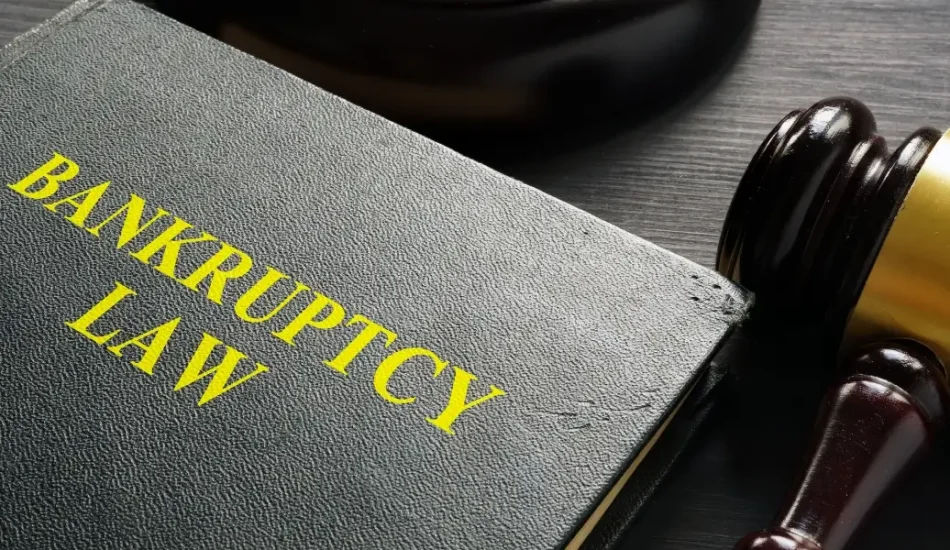A: There’s no single income limit for filing. Instead, courts will compare your average monthly income over the past six months to the median income for your household size in your state. If your income is below the median, you likely qualify based on income alone.
How to File Bankruptcy in Connecticut? A Step by Step Guide

Filing for bankruptcy in Connecticut can be a tiring and exhaustive process. It often includes complicated legal intricacies and financial considerations. Thankfully, Attorney Tim Pletter, a skilled bankruptcy lawyer, can help you through the process. The team at Ambrogio, Pletter & Associates, LLC can guide you every step of the way through how to file bankruptcy in Connecticut.
Why Choose Ambrogio, Pletter & Associates?
Attorney Tim Pletter has been helping clients get out of debt for 30 years. In one notable case, he helped a family discharge over $50,000 in credit card debt. However challenging your case may seem, he is prepared to help you through the bankruptcy process.
What Does It Mean to File for Bankruptcy in Connecticut?
The difference between personal and business bankruptcy is important to understand. Business bankruptcy involves resolving the debts and obligations of a company. Personal bankruptcy places the attention on an individual’s financial liabilities. You will need to consider what type of bankruptcy to file for to ensure the outcomes align with specific needs and goals.
In the state of Connecticut, common bankruptcy options include Chapter 7, Chapter 13, and Chapter 11. Chapter 7 discharges debt, which typically takes three months. Chapter 11 allows for business reorganization and continued operation under a court-approved plan. Each type has a specific and unique set of requirements and implications. Selecting the appropriate one for your situation is crucial.
Bankruptcy Statistics
From March 31, 2024, to March 31, 2025, 529,080 bankruptcy cases were filed, 3,463 of which occurred in Connecticut. The total number of federal filings marked a 13.1% increase from the previous year.
During the 12-month period ending in March 2025, 517,515 cases were terminated, and 663,622 were pending.
Why You May File for Bankruptcy
There could be many reasons why you may need to file for bankruptcy in the state of Connecticut. When filing, you should understand the specific circumstances that make bankruptcy the right option for you. Here are some of the main reasons why filing for bankruptcy might be the right path:
- If you are facing insurmountable debt and creditors are aggressively pursuing collections, filing for bankruptcy can provide legal protection and a way to address these obligations
- If your business is experiencing a significant decline in revenue due to Connecticut’s economic conditions, bankruptcy may offer a chance to develop a new plan for financial stability.
- If your company is unable to meet its payroll and operational expenses, bankruptcy can help to restructure financial commitments, ensuring that essential business functions can continue while you pay attention to debts.
How to File for Bankruptcy in Connecticut
The first step of filing for bankruptcy is to evaluate your financial situation to decide if this is the ideal option for you. Evaluation involves a detailed analysis of debts, assets, revenue streams, and the overall financial portfolio.
You may wish to consider other options in some cases, including restructuring business operations, negotiating with creditors for more favorable terms, and seeking additional financing.
Then, you’ll want to choose the right type of bankruptcy for your situation. In Connecticut, there are a few different types to consider:
- Chapter 7: This option allows you to discharge debts if you pass the means test or prove your debt is primarily non-consumer.
- Chapter 11: This is often used for businesses that have a chance to recover but need to reorganize their debts and operations. This option allows you to continue running your business while working on a court-approved plan to pay off debts over a period of time.
- Chapter 13: This type of bankruptcy is commonly used to stop the foreclosure of your home.
A Step-by-Step Guide to Filing for Bankruptcy in Connecticut
A step-by-step plan can help you make sense of your bankruptcy journey. The following steps can act as a guide to the process:
- Learn about Chapters 7 and 13.
- Determine if bankruptcy can erase your debt.
- Identify whether you may be able to keep the property.
- Find out if you qualify.
- Gather necessary financial documents.
- Take a credit counseling course.
- Fill out and file paperwork.
- Turn over financial documents.
- Attend the 341 creditor’s meeting.
- Attend the confirmation hearing and make plan payments (Chapter 13 only).
- File a debtor’s education course certificate.
- Receive your debt discharge.
It is expected that creditors will continue to call until you file, but it is recommended to ignore them. Telling them about your bankruptcy can sometimes inspire them to take more drastic steps before they lose the right to collect altogether. If you speak to legal counsel and refer creditors to your lawyer, they’ll be forced to stop calling you.
FAQs
Consult With Tim Pletter, Connecticut Bankruptcy Lawyer
If you’re facing bankruptcy, consider discussing your situation with a legal professional who understands what you’re going through. Attorney Tim Pletter and the team at Ambrogio, Pletter & Associates, LLC, are ready to assist you. Contact our law firm to schedule a consultation.
Take Action Today & Begin Moving Forward
Attorney Tim Pletter works directly with his clients, and most of your contact will be directly with him. Please contact our Stratford, Connecticut, office today to arrange your free consultation


